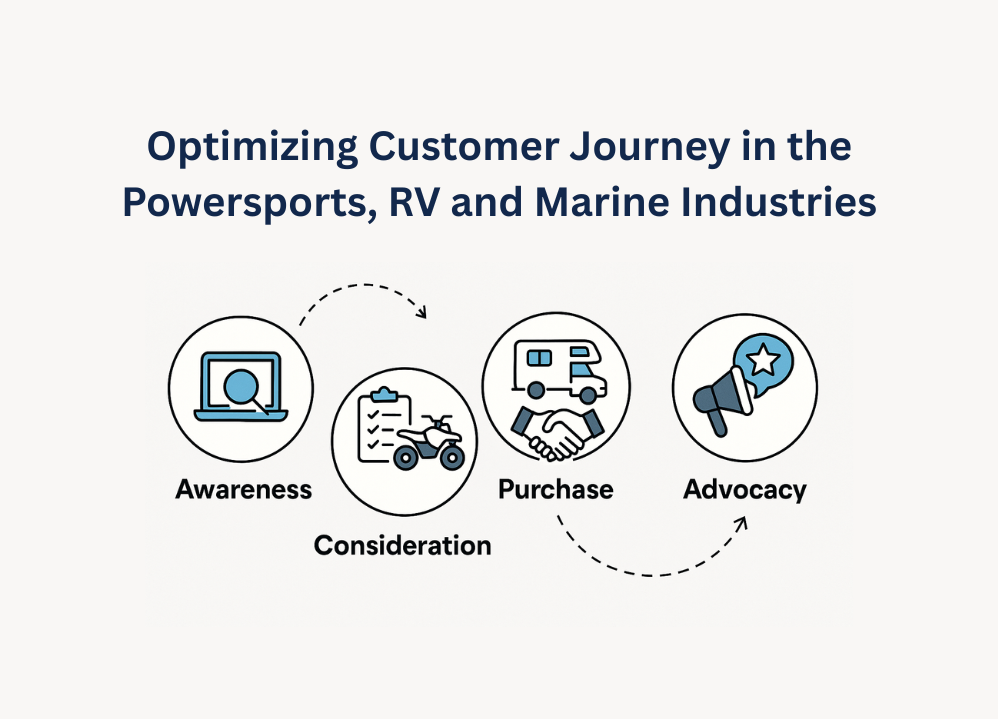The dealer management space is undergoing a profound transformation with artificial intelligence (AI) integration. This technology is enhancing lead quality, customer experiences, and operational efficiency and paving the way for a new era of dealer management. This article discusses the multifaceted impact of AI on modern dealers, illuminating its potential to revolutionize lead quality, improve customer interactions, and streamline operational processes. By critically examining the limitations and potentials of AI in dealer optimization, we aim to provide practical insights into understanding AI and its role in the recreation and equipment industry.
Understanding AI and Its Role in Enhancing Customer Experience
AI is not just a buzzword but a practical tool that can significantly enhance customer experience within dealer operations. By harnessing AI-driven technologies, dealerships can optimize customer interactions and deliver personalized services, elevating the overall experience for consumers. Specific examples of AI applications that are already making a difference include:
Personalized Recommendations: AI algorithms analyze customer data to provide tailored product recommendations, enhancing the relevance of offerings and increasing customer satisfaction.
Chatbots and Virtual Assistants: AI-powered chatbots offer real-time assistance to customers, addressing inquiries and guiding them through purchasing, thereby improving engagement and responsiveness.
Predictive Analytics: AI enables dealerships to anticipate customer needs and preferences, allowing for proactive and personalized interactions that cater to individual requirements. These examples underscore the pivotal role of AI in optimizing customer experiences and fostering long-term customer loyalty and retention. As dealers continue to embrace AI-driven solutions, the potential for further advancements in customer experience optimization remains promising.
Limitations and Potentials of AI in Dealer Optimization
AI plays a pivotal role in streamlining dealer operations, offering the potential for significant efficiency gains and process optimization. By integrating AI applications into inventory management, supply chain operations, and logistical processes, dealerships can achieve the following:
Inventory Optimization: AI-driven predictive analytics enable dealers to forecast demand, optimize inventory levels, and minimize stockouts, leading to improved inventory turnover and reduced carrying costs.
Supply Chain Efficiency: AI facilitates the automation of supply chain processes, enhancing visibility and enabling proactive management of supplier relationships, ultimately leading to streamlined operations and cost savings.
Logistical Process Optimization: AI algorithms analyze historical data to optimize logistical routes, minimize delivery times, and reduce fuel consumption, enhancing operational efficiency and customer satisfaction.
While the potential for AI to streamline dealership operations is substantial, seamlessly integrating AI into existing processes presents challenges. These challenges include [specific challenge of AI integration], [another specific challenge of AI integration], and [third specific challenge of AI integration]. Despite these challenges, the potential for AI to revolutionize dealership operations remains a compelling prospect.
Understanding AI and Its Role in Streamlining Dealership Operations
Looking ahead, the evolution of AI in dealership management holds significant promise for further transformation and innovation. Key areas where AI is poised to make substantial advancements include:
Predictive Maintenance: AI-driven predictive maintenance solutions will enable dealerships to anticipate equipment failures, schedule proactive maintenance, and minimize downtime, optimizing operational efficiency.
Customer Relationship Management: AI-powered CRM systems will continue to evolve, offering enhanced customer insights, personalized communication strategies, and predictive analytics to drive customer engagement and retention.
Autonomous Vehicles Integration: As autonomous vehicles become more prevalent, AI will play a crucial role in managing and optimizing the integration of these advanced technologies within dealer operations.
The evolving landscape of AI in dealership management underscores the need for continuous adaptation and innovation to harness the full potential of AI-driven solutions. As AI technologies advance, dealers that embrace and effectively integrate these innovations will be well-positioned to achieve sustained growth and competitive advantage in the recreation and equipment industry.
Future Perspectives: The Evolution of the Role of AI in Dealer Management
The integration of AI in dealer management presents a paradigm shift, offering substantial potential to enhance lead quality, streamline operations, and elevate customer experiences. As AI continues to evolve, its role in predictive maintenance, customer relationship management, and autonomous vehicle integration is set to redefine dealership processes.
Dealerships that embrace AI-driven solutions stand to gain a competitive edge, driving sustained growth and innovation in the recreation and equipment industry. Visit Rollick to discover more strategies and solutions to enhance dealer management and boost customer satisfaction.




